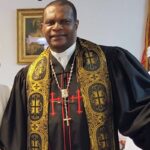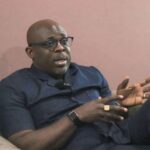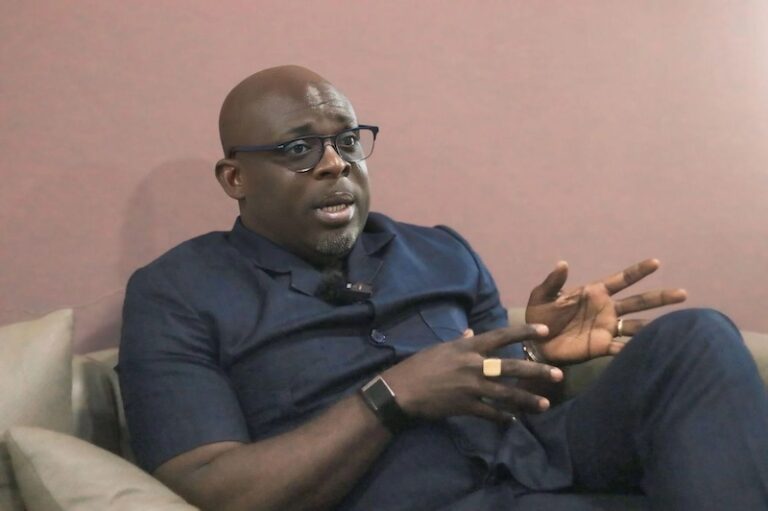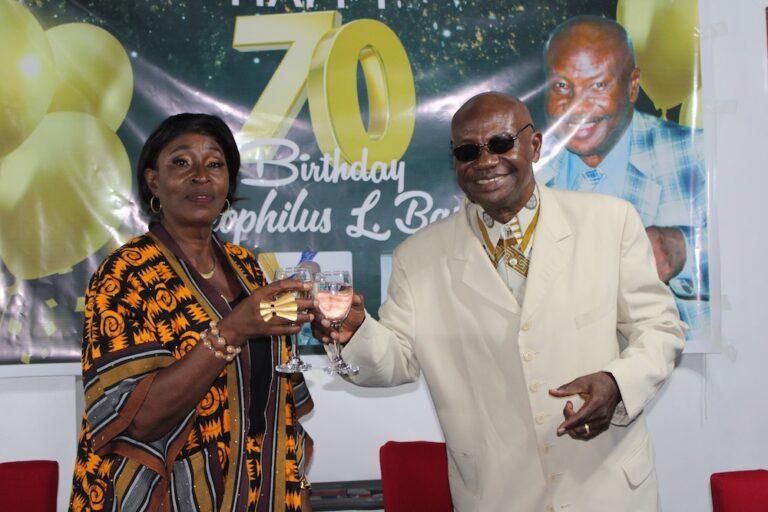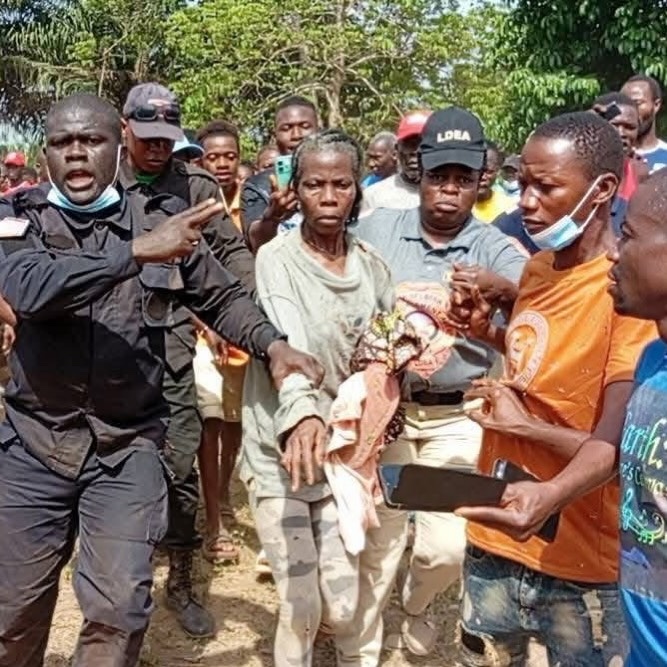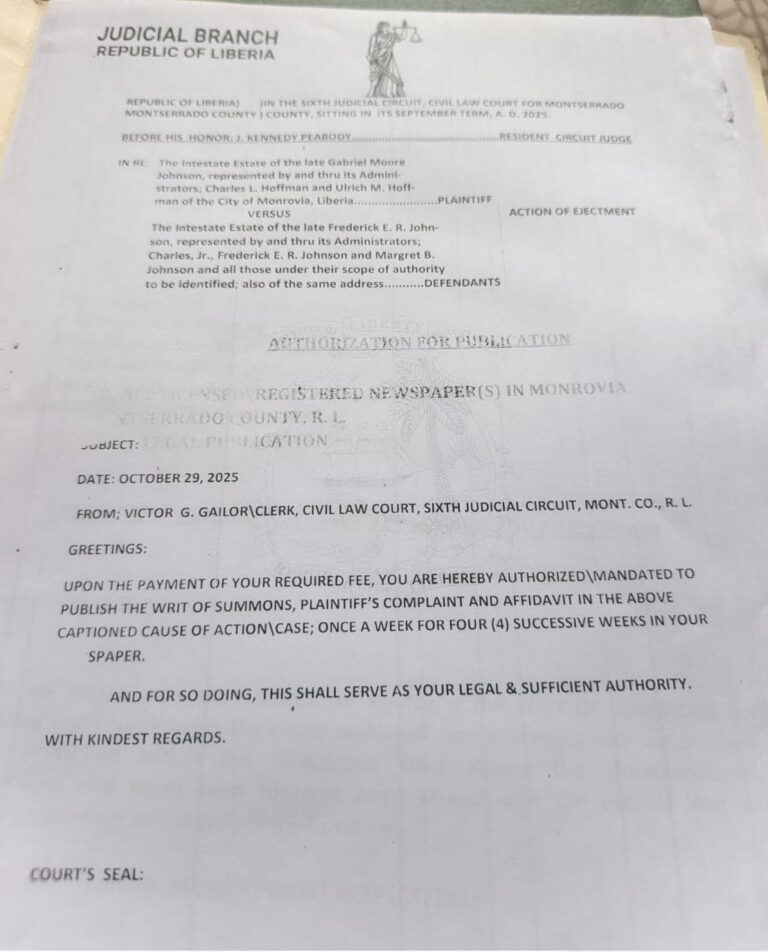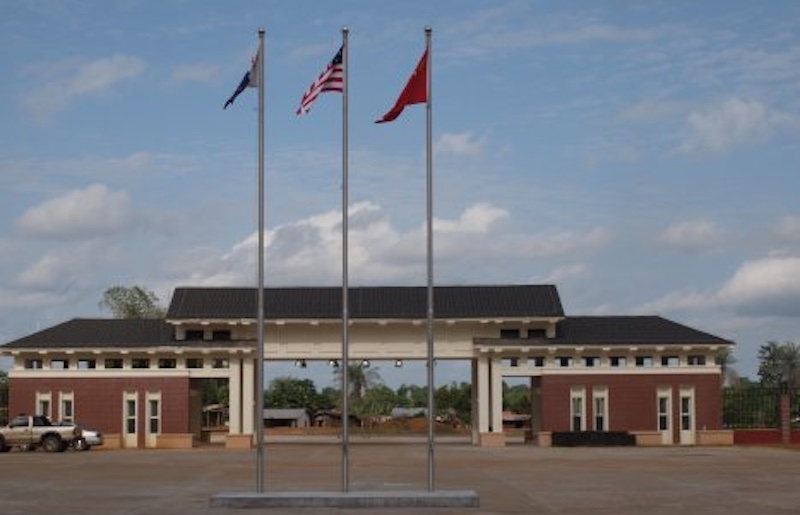
By
Hun-Bu Tulay
Email: ntevoma@gmail.com
Cell: +231-777-111-032/886-517-356
Long before the burning of the Legislative Seat of the government of Liberia (The Capitol Building), we penned a feature on April 27, 2024, titled “DARK DAYS AHEAD IN LIBERIA”. We quoted Steven Erikson: “The Lesson of History is that we do not learn from history”. We had hoped that our political leaders in the country would read it and be mindful of their political decisions; unfortunately, it seems that many did not read the feature, and those who did have faded memories.
We started that feature with the core definition of history. For those who did not read it, we advised them to visit TLC to read the full feature. But to save you time, we repeat the first few paragraphs below:
History is the systematic study and documentation of human activities across time, encompassing cultural achievements, technological innovations, linguistic evolution, societal challenges, and intellectual advancements. At its core, history serves as a collective memory, preserving not only the triumphs of civilizations such as artistic movements, scientific breakthroughs, and political reforms but also the struggles they endured, including wars, inequalities, and environmental crises. By examining how past societies navigated obstacles, history provides invaluable insights into problem-solving, resilience, and adaptation. For instance, analyzing responses to pandemics, economic collapses, or social upheavals equipped modern societies with frameworks to address similar challenges today.
The importance of studying history lies in its ability to foster critical thinking, contextual awareness, and informed decision-making. It reveals patterns in human behavior, highlights the consequences of actions, and underscores the interconnectedness of global communities. Moreover, history cultivates empathy by exposing learners to diverse perspectives and experiences, bridging gaps between cultures and generations. Those who engage in history gain not only a deeper understanding of humanity’s shared journey but also the analytical tools to anticipate future challenges, mitigate risks, and innovate solutions. In this way, history is not merely a record of the past but a vital guide for shaping a more informed and equitable future.
It empowers individuals to learn from collective mistakes, appreciate cultural heritage, and develop strategic foresight, ultimately enabling progress through informed, evidence-based action.
The Perils of Ignoring History’s Lessons:
Philosopher George Santayana once warned, “Those who cannot remember the past are condemned to repeat it.” This adage, though timeless, carries a haunting resonance for Liberia, a nation whose recent history is marred by cycles of conflict, governance failures, and unlearned lessons. Civil society and historians have long emphasized the imperative of historical literacy to inform policymaking; past and present administrations appear trapped in a disheartening pattern: repeating the very missteps that precipitated a century of turmoil. As the nation grapples with escalating economic instability, political polarization, and social fragmentation, the spectre of dark days looms ever closer.
University of Liberia the Cradle of Political Change in Liberia
When President Tubman silenced his political opposition after the 1955 plot that failed, there was no formal opposition to his rule. From 1955 to 1963, Tubman’s autocratic rule went largely unchallenged. He was the executive, the legislature, and the judiciary. The first significant opposition to Tubman’s autocratic rule came in 1963 from the students at the University of Liberia, when the student leader by the name of E. K. Sherman, the junior brother of Secretary of Treasury, (Charles Dunbar Sherman) 1958-1968). This was followed in 1968 by Marvin Cole, a student leader, who vocally compared the Samuel Greenleaf Dormitory (Boy Hostel and the Elizabeth Tubman Dormitory (The Girl Hostel). He noted that the Girl Hostler had better architectural features because it was named in honour of the President’s mother. Student Cole’s simple comparison did not sit well with Tubman, who ordered university authorities to expel him.
Two years after his expulsion, in 1970, the Student Unification Party (SUP) was established at the University of Liberia. Since its establishment, it has become the voice of the masses, both at the university and beyond. Even if President Tubman had not died in a London clinic in 1971, he would not have managed the rising political consciousness at the University of Liberia. God saved him the shame.
It is undeniable that SUP is the oldest opposition political group in Liberia. It has been in existence for 55 years and continues to be a formidable force. Successive governments have treated her as a serious opposition entity. In 1982, five members of its leadership were charged with treason by the military government of Samuel Doe. Many members of the current government, who were student leaders themselves, were very vocal during the Taylor administration. Have they forgotten that SUP still exists at the university?
A Legacy of Protest: When Student Movements Turned Violent
The history of student activism in Liberia is not just about speeches and boycotts; it is also etched with incidents of tragic violence that serve as stark warnings of what happens when dialogue fails.
April 14, 1979, Riots: What began as a protest a proposed increase in the price of rice exploded into nationwide riots. While not solely a university protest, students and SUP leaders and members were at the forefront. The government’s heavy-handed response led to a violent crackdown by security forces, resulting in hundreds of deaths and massive property destruction. This event is widely seen as a critical catalyst that destabilized the Tolbert administration and set the stage for the 1980 coup.
The August 22, 1984, Protest: When Dr. Amos Sawyer was arrested on alleged charges of planning to overthrow the Doe government, SUP mobilized students from the University of Liberia and high schools across Monrovia. The protests demanded his release. The military government’s response was swift and brutal, with soldiers opening fires on unarmed students. While the exact number of casualties was suppressed, it confirmed the deadly price of silencing dissent. This act of the military provided the stage for the 1985 Thomas Gankama- Quiwonkpa invasion in the country.
The 1996 Fendall Campus Crisis: During the tumultuous post-war period, a protest over administrative issues at the University of Liberia’s Fendall campus was met with violence. Armed elements, allegedly linked to factional leaders, opened fire on students, leading to deaths and injuries. This event demonstrated how easily student grievances can be exploited and escalated in a fragile political environment.
By 1983, SUP had extended its tactics to all public schools in Monrovia, a network vividly displayed during the 1984 protests. SUP’s influence even reached the campus of Cuttington University in Bong County. As we write this piece, SUP’s influence extends to almost all higher education institutions in Liberia. SUP might call for a nationwide protest if government does not act. If this call materializes, the historical precedents suggest it will not be good for the country.
Are some Elements of the Government Undermining the government?
The protest at the University of Liberia, like the burning of the Capitol Building, could have been avoided if the ministers were geniuses, because geniuses prevent crises. The question is, why was the University of Liberia’s allotment not paid in full as per the allocation in the 2024 budget, while those of the Legislature and other branches were paid 100%?
It is alleged that the funding was deliberately withheld to undermine President Boakai’s administration. Hence this should not be dismissed without a full, transparent investigation into the holding of the University of Liberia’s allocation and use of resources.
The Disconnect: Alumni and the University of Liberia’s Struggle
Unlike universities worldwide that benefit from active, supportive alumni, the University of Liberia suffers from a painful paradox. Many of its most prominent graduates now hold high offices as presidents, speaker, ministers, managing directors, director generals managers of banks and policymakers yet instead of championing their alma mater, they withhold funding and neglect its needs.
It is both a shame and a profound contradiction that those who once protested for better conditions as students are now in positions to create change but choose to look away. The very institution that shaped them is left struggling, while they control the resources that could transform it.
The Student Unification Party (SUP) remains watchful and uncompromising. The consequences of this neglect are inevitable. We will see what unfolds.
Consequences of withholding university funding or underbudgeting the university
Senate hearings revealed a significant discrepancy in the university’s funding. While the national budget allocated $33.6 million to the institution, the comptroller testified that only $31.0 million was received. Most alarmingly, this missing $2.6 million from the national budget and specific $1 million line item for critical renovation projects, were never disbursed. This withholding of legislative allocated funds is a serious matter that demands an immediate explanation from the Executive Branch of the government.
Consequences of Withholding University Funding:
The withholding of such a significant sum would have severe and wide-ranging consequences for the university, affecting its operations, community, and long-term health. The impacts can be broken down as follows:
- Operational and Academic Disruption:
Unpaid salaries: The most immediate impact would likely be a hiring freeze, layoffs of adjunct faculty, and non-renewal of contracts for support staff. This would increase the workload on remaining staff and diminish student support services (advising, counseling, library services).
Cancelled Programs and Courses: The university may be forced to cancel low enrolment but academically vital programs, majors, or specific course sections. This would limit educational opportunities for students and delay their graduation timelines.
Reduced Student Resources: Funding essential resources like transportation for students and staff, Internet, library databases, laboratory equipment, software licenses, and research materials would be cut, directly compromising the quality of education and research.
- Infrastructure and Deferred Maintenance:
Stalled Renovations: The specific withholding of the $1 million renovation fund means critical infrastructure projects are halted. This could include urgent repairs to roofs, updating outdated electrical systems, or making buildings environmentally compliant.
Deteriorating Facilities: Deferred maintenance leads to a decline in the physical campus leaky buildings, poor water and sanitary facilities for the over 25,000 students and staff, malfunctioning HVAC systems, and outdated classrooms. This creates an unsafe and unconducive environment for learning and work, potentially leading to higher long-term repair costs. What is what one sees currently at the University of Liberia.
- Financial and Reputational Damage:
Erosion of Trust: Such an action damages the relationship between the University and its potential funding bodies, donors, and financial partners, making future fundraising more difficult. Let it be understood that Dr. Mapaeryan’s ability to raise funds for the university would be at risk due to continuous protests. Therefore, it is important to address the grievances of both faculty and students in the soonest.
Reputational Harm: News of financial instability can deter prospective students and top-tier faculty from associating with the institution, fearing a diminished educational experience or job insecurity.
- Impact on Students and Faculty:
Increased Financial Burden on Students: To compensate for the shortfall, the University might be compelled to ask government to revisit the FREE TUITION POLICY and raise other nontuition fees, placing a heavier financial burden on students and families.
Education Quality:
Larger class sizes, fewer course offerings, and overworked faculty inevitably lead to a decline in the overall quality of education and student satisfaction.
The Imperative of Sustained Funding
A critical pillar of any great university is its capacity to generate new knowledge and foster a culture of innovation. This mission is driven by the research of its faculty and the exploration projects of its students. However, this ecosystem is highly vulnerable (protests). The inability to secure consistent and substantial grants for research and student-led initiatives poses an existential threat to the university’s core academic mission.
- Long-Term Strategic Paralysis:
The institution would be forced to shift from strategic planning (investing in new initiatives, future growth) to crisis management (deciding what to cut next). This reactive mode prevents long-term development and causes the University to fall behind its peers. This has been the case over the past six years (2018-2023)
In summary, the $3.6 million budgeted for the University is not just a budgetary line; withholding it from the University is an action that cripples the University’s daily operations, jeopardizes its physical infrastructure, damages its financial standing and reputation, and ultimately compromises the education and well-being of its students and faculty.
If this amount would have been made available to the University it would have solved some of the problems at the University, thereby avoiding the protest.
It is interesting to note that a protest already occurred on the Fendall Campus on Thursday, September 12, 2025, where students threw stones and damaged the windowpanes of the auditorium in the Administrative Building (Chinese Building). Now, the government must find funds to do the repairs. Many of our problems in this country are caused by us. Maybe Bishop Bannie Warner was correct when he said that the problem with Liberia is us. Greed and envy have clouded our judgment, and we are unable to solve our problems of everyday existence. This is a “SHAME” for a country that is 178 years old. Are these elements driven by their dreams of 2029? “President Boakai, open your eyes.” Do not be like Tolbert, who was told that he would walk from Buzz Quarters to Hotel Africa in Virginia and nothing would happen to him.
The problems at the University existed before the 2023 elections; therefore, every elected and appointed official in this government was aware of them. How come they did not avoid the protest? If the problems are not resolved, dishonest politicians will use the students, and the consequences will not be good. Be wise. Even those who undermined Tolbert were not spared.
The Mystery of the alleged one Million United States Dollars: A Call for Accountability in University Leadership
Background: A Promise of Progress
In the final days of the Interim Administration, just before Dr. Layli Maparyan, the leadership, it is alleged the received significant financial infusion to address long-standing infrastructural and maintenance problems at the university. It is alleged that a sum of US$1,000,000 (One Million United States Dollars) was made available with the explicit purpose of executing critical, high-impact projects to ensure a smooth transition for the incoming administration under President Dr. Layli Maparyan. The purposes for this fund were clear, urgent, and vital to the basic functioning and dignity of the institution:
Sanitation: Resolving persistent water shortage and poor sanitation, repairing restroom facilities, and ensuring environmentally friendly learning environment on the campuses of the University to uphold basic health standards.
Water Supply: Fixing broken pipelines and pumps to guarantee a reliable supply of clean water to dormitories, laboratories, and administrative buildings.
Building Repairs: Addressing significant roof leakages that damage equipment and furnishings and applying a fresh coat of paint to restore a sense of pride to the campus’s decaying infrastructure.
Road Improvements: Grading and repairing the heavily potholed internal road network to ensure safe and accessible passage for students and staff.
The underlying assumption was sound: this investment would have resolved acute problems, allowing the new president to begin her teem focused on academic and strategic development, rather than being immediately mired in a facilities management catastrophe.
The Uncomfortable Reality: A Disconnect Between Allocation and Outcome
However, upon the commencement of Dr. Maparyan’s term, the promised transformation was conspicuously absent. The same problems persisted:
Students still contend with clogged drains and unsanitary conditions.
Leaky roofs continue to threaten infrastructure and create disruptions.
The roads remain in a state of disrepair.
The glaring disconnect between the substantial financial allocation and the minimal tangible improvement on the ground raises profound and troubling questions. The university community and the public at large are now left to ask: If the money was indeed received, what exactly was it spent on? Today the new president Dr. Maparyan, instead of concentrating on academic works, is trying to resolve those problems that the funds were allegedly given for. The problems have almost caused her job. Who should the students’ anger be directed against, the government or the president?
A Formal Demand for Transparency and Accountability
This is not merely a matter of administrative oversight; it is a fundamental issue of fiduciary responsibility and ethical leadership. The alleged misuse or non-use of such a significant sum of public funds demands an immediate, transparent, and thorough response.
We, therefore, call for the following actions to be taken without delay:
- Full Financial Disclosure: The Interim Administration, under Dr. Conteh, must provide a complete and publicly accessible audited statement of accounts for the specified period. This statement must be detailed:
– The exact amount received and the date of receipt.
– A line-item breakdown of all expenditures from this fund, including invoices, receipts, and contracts awarded.
– The names of any contractors hired and the specific work they were paid to perform.
- Project Verification Report: An independent audit and verification committee, comprising respected figures from within and outside the University, must be formed immediately. Their mandate should be to physically inspect the purported work sites and verify that the expenditures are listed aligned with complete, quality work.
- Official Statement: Dr. Ali Hassan Conteh and the officials of his interim administration owe the university community a formal, public explanation. Vague assurances are insufficient. They must address the allegations directly and provide conclusive evidence demonstrating how the million dollars was utilized to benefit the institution.
Upholding the Principle of Stewardship
A university is a bastion of integrity and a custodian of future generations. The alleged disappearance of a million dollars intended for essential services is a severe breach of the trust placed in its leaders. It undermines the morale of students and staff and damages the institution’s reputation with donors and partners. If the funds are not accounted for, it would make it difficult, if not impossible, for the new president to raise funds to the University. Transparency starts by being transparent with local funds for that will encourage donors and partners to trust you.
This is a pivotal moment for accountability. We must insist on answers. The entire university community students, faculty, staff, alumni have a right to know what happened to the money that was meant to serve them. Ensuring this transparency is not an option; it is an absolute necessity to restore faith and ensure that such a grave question mark over leadership and finances never arise again.
The future of the University’s integrity depends on the answers provided today.
Recommendations to Avoid Protests and Foster Dialogue
To prevent the University of Liberia from becoming a recurring flashpoint and to heed the hard lessons of history, the government and University administration must adopt a proactive and respectful approach:
Prioritize and Guarantee Funding: The national budget is a statement of priorities. Education, particularly the nation’s premier university, must be treated as an indispensable investment in national stability and future development. The government must legally guarantee and automatically disburse the University’s full allotted budget on time, insulating it from political manipulation. The University of Liberia must not be micromanaged nor treated as a mere subset of the Ministry of Finance and Development Planning. To restore its former glory and achieve future success, it must be restored to the full autonomous status it enjoyed prior to 2018. The Ministry’s role should be limited to the transparent quarterly transfer of allotted funds, as was the practice before the CDC Administration. This return to financial and administrative independence is not merely a procedural change; it is the fundamental prerequisite for President Dr. Maparyan to succeed, just as Dr. Emmet Dennis did during his term.
Dr. Maparyan possesses a visionary plan to restore the University to its “Golden Age” of the 1970s, a period when it was a premier academic hub in West Africa. In that era, the University attracted a diverse student population from across the continent and the world, including South Africa, Nigeria, Ghana, Europe, and America. Today, in a tragic reversal, Liberian students are forced to seek quality education abroad, with many looking to institutions in nations like Rwanda. This exodus is a stark indicator of our national academic decline and a profound shame for a nation with such a storied history of higher learning.
Strong Arguments for University Autonomy
- Enhances Academic Excellence and Innovation:
Curriculum Freedom: An autonomous university can swiftly adapt its curriculum to meet global standards, incorporate emerging fields, and respond to the specific needs of the national job market without being entangled in slow, bureaucratic government approvals.
Merit-Based Hiring: It can recruit and retain top-tier faculty and researchers from around the world based on expertise and academic merit, rather than being constrained by civil service rules or political considerations. This directly improves the quality of teaching and research.
Bb. Promotes Efficient and Agile Financial Management:
Fiscal Responsibility: With control over its own budget, the university leadership can allocate resources strategically and efficiently based on immediate academic priorities whether it’s lab equipment, library resources, faculty development, or infrastructure maintenance.
Quick Response to Needs: Autonomy allows the administration to address urgent issues without waiting for prolonged ministry directives. A leaky library roof can be fixed immediately; a promising research grant can be matched promptly.
- Fosters a Culture of Intellectual Freedom and Critical Thinking:
Shield from Political Interference: Autonomy acts as a vital buffer against political pressure, ensuring that academic inquiry, research, and discourse remain free and critical. This is the bedrock of a vibrant academic environment where difficult questions can be asked, and new ideas can flourish without fear of reprisal.
Academic Integrity: When hiring, promotions, and research grants are awarded based on academic criteria rather than political patronage, it reinforces institutional integrity and builds internal and international credibility.
- Drives National Development and Global Competitiveness:
Economic Engine: A world-class university is a powerful engine for economic development. It produces a highly skilled workforce, drives innovation, attracts international investment, and creates spin-off industries.
International Standing: Autonomy is a key marker of a serious institution for international partners, donors, and accreditation bodies. It signals that the university operates with integrity and academic freedom, making it eligible for global research grants, partnerships, and recognition. Restoring this status is essential to stem the outflow of Liberian students and dollars and to once again attract talent to our shores.
The path to reclaiming the University of Liberia’s Golden Age is clear. Micromanagement by the Ministry of Finance stifles the very innovation, agility, and excellence that a modern university requires to thrive. Granting full autonomy is not about removing oversight, but about replacing bureaucratic control with accountable, academic-led governance. It is an investment in Liberia’s greatest resource—its people—and the most powerful strategy to ensure that the roads to knowledge and opportunity once again lead to Monrovia, not away from it. For Dr. Maparyan to succeed and for Liberia to prosper, the University must be set free to govern itself.
Recommendations
- Establish a Permanent Dialogue Committee: Create a tripartite committee comprising elected student leaders (including SUP), university administration, alumnus association, and government representatives (e.g., from the Ministry of State for Presidential Affairs, the University’s Board of Directors and the Ministry of Finance and Development Planning). This committee should meet quarterly, not just during crises, to address issues like funding, infrastructure, scholarships, and academic quality transparently, until many of the current issues are resolved.
- Learn from Past Mistakes: Security forces must be trained in de-escalation tactics. The default response to student protests cannot be intimidation or violence. The ghosts of April 14, 1979, and August 22, 1984, must serve as permanent reminders of the catastrophic cost of violent repression.
- Address Legitimate Grievances Promptly: Do not allow small, solvable problems to fester and become catalysts for larger unrest. The issue of missing funds is a clear example. Addressing it with transparency and urgency is the first step toward rebuilding trust.
- Respect the Role of Student Activism: The government must recognize that a vibrant, critical student movement is a sign of a healthy society, not an enemy to be crushed. SUP’s long history embodies a tradition of holding power to account. Engaging with them constructively is far wiser than attempting to marginalize or provoke them.
The path to avoiding “dark days” is illuminated by the lessons of our past. The choice between dialogue and disaster remains ours to make.


